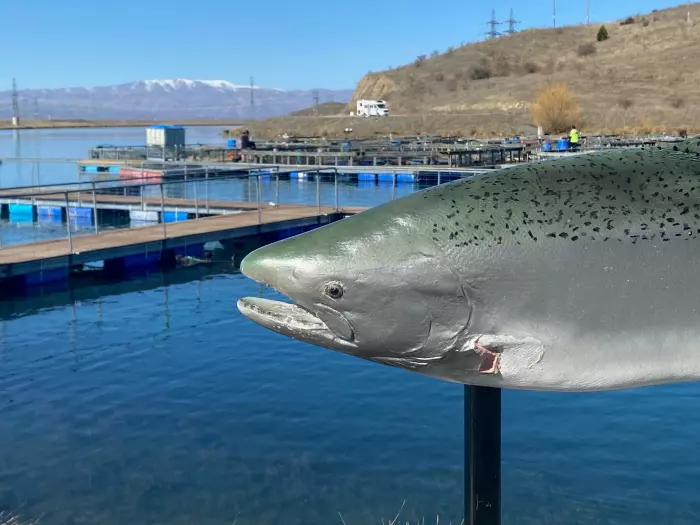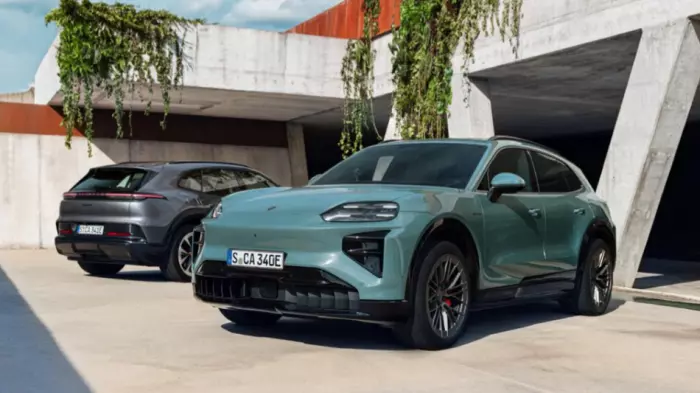Chinook, the species of Pacific salmon, is also a North American term used to describe an unseasonal wind.
Both are relevant to Mackenzie Basin salmon farmer and retailer High Country Salmon as it faces up to winds of change in adding value to its established and thriving business.
The farm, located on a highly visible site just off State Highway 8 a few kilometres south of Twizel on the exit of Lake Ruataniwha at the Ohau Canal is the brainchild of former public service worker Richard Logan - who established it in 2000 with wife Margaret, son Peter and daughter Jeni.
Richard and friend Woody Horsfield had started growing salmon in the glacier-fed hydro-canals in 1992, and High Country is actually the third site location, after their Southern Sockeye farm near Ohau and Benmore Salmon – both now owned by larger commercial player Mt Cook Alpine.
High Country's lease straddles land and canal assets owned by Meridian Energy and crown land further south.
On Dec 21, 2000, three days after the first pens were constructed, the farm took delivery of 30,000 Chinook smolts averaging 26 grams each. That was on the back of securing a fish-farming licence for 50 tonnes. 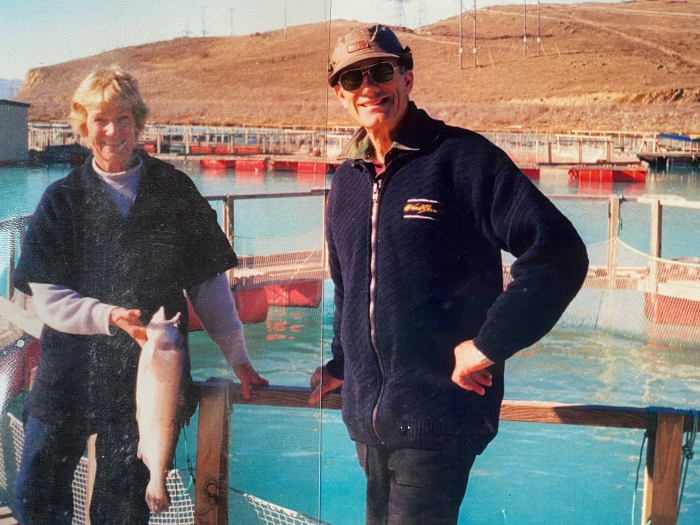
Margaret and the late Richard Logan. (Image: HC Salmon)
Because it was family-funded, and while the fish grew to a mature weight, the business took three years to move into sales mode.
Early sales were made with little fanfare; gilled and gutted whole fish were sold out of a chilly bin from a car boot.
Expansion
Richard Logan, who was well into his 60s when he started preparing the High Country site, died in 2012.
But the Logan family have continued to nurture the business over the past decade and has substantially grown it – particularly across its retail, experience and hospitality offering – as it reached capacity for its fish order business.
Now, 23 years after the first Chinook smolts arrived, there are a dozen pens holding between 4,000 and 10,000 in each depending on maturation – all up, 200 tonnes of fish (the allowance was increased in 2010).
Director Jeni Logan said that puts it in a "boutique" class, particularly in the context of the larger Mt Cook processing and export set-up.
To catch a fish
The company, which this year scooped the South Canterbury Chamber of Commerce "people’s choice" award, employs 38 full-time workers. That number ramps up into the mid-40s during the tourist months – largely to help out with the increase in passing trade and unique "catch a fish" offer.
Outside of staff, the biggest cost to the business is fish feed, supplied by global aquaculture company Skretting, out of Tasmania.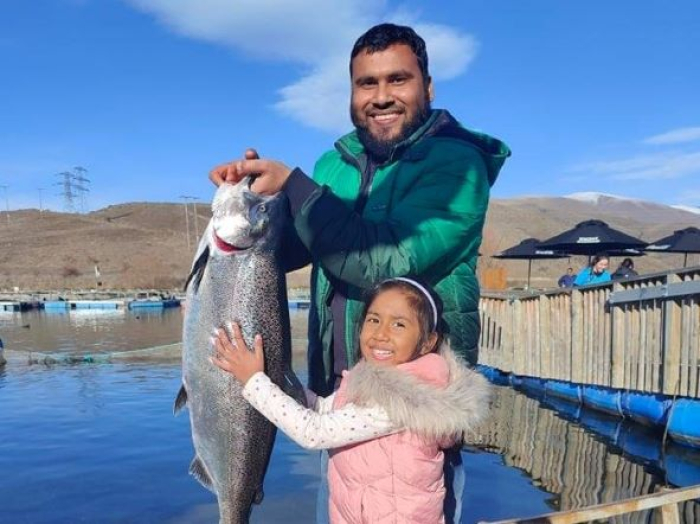
Catching your own Chinook at $10 (plus the cost of the fish), is almost a sure bet. (Image: HC Salmon)
During the covid pandemic, High Country made the decision to expand its on-site retail offering and open a new fish shop.
“It turned out to be an ideal time, though it was an investment decision made at a time when other businesses were hunkering down,” Logan said.
The move proved successful, with sales up on the back of the resurgent tourist trade, and from a production perspective, High Country is at capacity.
Restaurant trade
About a third of the daily catch – between 80 and 250 fish – is either consumed at the restaurant on-site or sold via the shop, with the bulk dispatched to restaurants and other private customers who order online.
Outside of fresh salmon, the product range includes three hot smoked flavours: its main seller, hot smoked mānuka, as well as oak, and honey and thyme. Its four cold-smoked options are oak, mānuka, truffle and beetroot.
I can vouch for the truffle, in particular.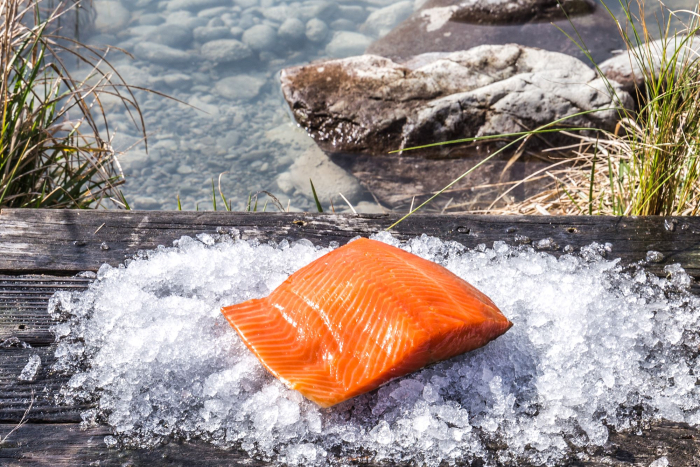
Fresh filleted salmon, processed to order. (Image: HC Salmon)
High Country’s cured range includes vodka-cured gravlax, gin and lemon, and more recently, bourbon and maple. The smoked and cured products are done offsite with the Wee Smokehouse near Geraldine.
The entire fish is sold, with frames popular with restaurants for their fish stock. Other by-products are sold to New Zealand Petfoods in Timaru.
Kitchen-table decisions
And the wild-versus-farmed salmon debate?
“Our fish are lean, they’ve got good oil content, and much of that comes down to their feed and the environment they’re in," Logan said. "They’re swimming but not being forced to swim, and they don’t have natural predators here – so it’s not a stressful environment.
“I don’t know that I’d know the difference between a farmed and a wild salmon, but then that's what I've grown up with.”
Today, High Country’s main challenge is facing up to moving from a small family-owned business that has grown organically to introducing growth planning across its farming, processing and restaurant areas while improving the visitor experience, Logan said.
“We’ve tended to make decisions around the kitchen table and reacted to issues as they arose.”
Looking forward
Last month, the company appointed its first independent director – Justin Riley, former chief executive of Geraldine-based Barker Fruit Processors and chief executive of NZ Functional Foods, which was established by Great South and Stephen Tindall’s K1W1 to pursue sustainable food and land use opportunities in Southland.
With funding from Callaghan Innovation, High Country has also engaged an in-house research and development employee to look at waste-stream revenue, turning a small number of "morts" (dead fish) and other waste products into a hydrolysate bio-fertiliser.
It’s early days for that business line, but Logan said the early tests were promising. And like most of High Country’s products, the output would end up being sold online or through the firm's on-site shop south of Twizel.


